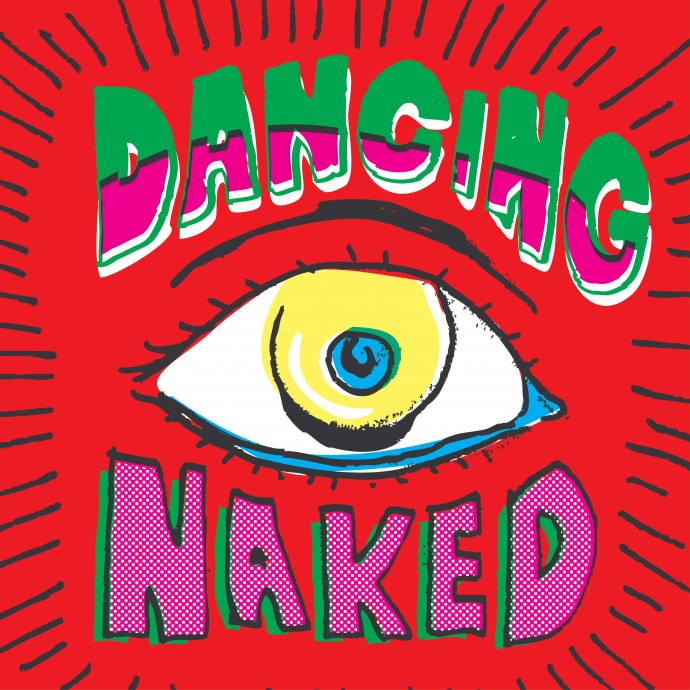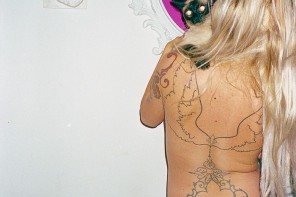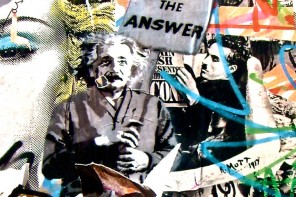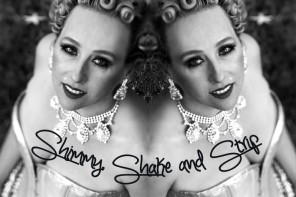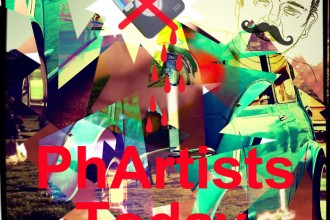To dance is to move, to perform; a physical expression of art. Jean-Guillaume Weis, a dancer from the age of six, describes the beauty and brutality of what he does. As an audience we only perceive the final result, but he depicts the various stages of dance, from conception to creation, revealing the pain, the elation, the struggle and the exhilaration.
Sometimes dance feels cruel, and you feel uncomfortable and insecure. You’re scared to miss a step or make a small mistake and in these moments you feel incredibly exposed and vulnerable.
At early performances I was always afraid, but at the same time confident.
Once you’re on stage, you go through a whole range of unfamiliar, confusing emotions. You’re aware of the audience watching you, of yourself and conscious of your own body moving through space. You imagine what you’re representing to the audience because what you are at that moment is an art form, a projection of art itself and simultaneously there’s the internal experience, the emotional, physical part that happens inside of you: adrenaline, fear and anticipation.
This multifaceted awareness is extremely complex, but it’s what makes dance so great for the soul, the brain and the body, it unites different angles: intuition, perception and coordination. A dancer who accesses all these levels is a fantastic dancer, and these are skills you develop along with a feel for rhythm, musicality and tone.
Once you practice enough, you get over your fear and you can dance with confidence. After a while, whenever I performed, however strenuous the dancing, I always kept this part of me that remained calm and serene, in total control. That part knew exactly what I was doing, where I was going, and if, for example, I felt pain or strained a muscle, I would be able to find out what movement I was doing wrong and correct it while dancing, so it wouldn’t develop into an injury. I had the ability to channel these small signals and fix them.
I tend to combine dance with scenes of everyday life because dance is natural to me. I feel that it’s my craft and I like to show who I am, as a human and as a dancer. At my age I can’t dance all the time anymore, and artistically it’s not necessarily what I want to do. I like to create a story, a narrative and to construct a persona, to build a little piece together.
In my last piece, a man lands in a supposed no man’s land that turns out to be a theatre. He arrives on scene and is confronted with music, lights and machinery. In this magical place he remembers his first movements as a dancer, his first classes, and with every new piece of music he discovers, he imagines new ways to move to it. So as the piece goes on, little by little he gains more control over the music, and to different types of music he proposes different types of dance. Finally, it all vanishes and there is nothing left, just smoke. It’s kind of a tribute to theatre in general and to the ephemeral place that it is; a wonderful place where people create these shows, these miracles that then end and leave nothing tangible in their wake because it’s all fabricated. It stays in the heads of the audience, but only in the form of emotions, various scenes and the individual sensations they provoke.
I always like to add some humor to make fun of the profession itself. I would take out a pack of cigarettes in this big solemn moment, classical music playing in the background, and break out of the theatrical cliché.
The element of theatre in my dance stems from Pina Bausch’s Tanztheater. Before working with her, I hadn’t done any talking, laughing or singing and breaching this new dimension was a big challenge.
My first performance involved me dropping a heavy obstacle on my stomach 3 times in a row and then cracking up laughing. The whole dance company was on stage watching me as well as the audience and the first time I had to do this…. Well, it was a terrible moment, I can tell you. This moment only lasts one minute in a three hour and 20 minute piece but just that particular thing really unsettled me. I didn’t sleep for two nights and would have given anything not be there at that moment. When it finally came I thought my heart was going to burst. I felt very uncomfortable and everyone noticed how vulnerable and afraid I was. I was given the chance to work on it and six months later I had grown and overcome so many other obstacles that I could do it, and people congratulated me on how far I had come.
In fact, every time you start a new project or with new people, it’s like you start dancing from scratch; you question yourself and rework your whole technique from the roots upwards.
Being naked is also just something else that you’re afraid of because you’ve never done it before. Being half naked, in underwear, or changing on stage is part of the performance to me; it’s natural for us to undress and change clothes. We do it all the time so it belongs to the stage. I don’t create pieces where people run on and off the stage, coming back in different costumes. Instead, I usually just make everything happen on stage. I also think people enjoy seeing our bodies, it’s what we work with, it’s our tool, and it makes us different but it makes us human. Every time I was naked on stage I did it for a reason, and nudity can be fascinating, as long as you know when and why you use it. At my age I don’t show my body anymore; I don’t know why I should.
The problem with dance now is society’s need to label everything with a degree. You can have a degree in teaching dance or choreography but still have no real experience, an official document but no idea.
These boys and girls leave university with what can be a good level, but they’re already 24 years old. At that age, I already had eight years of professional dancing experience. I was artistically mature, and had seen and learned a lot. When it comes down to it, you are judged by your abilities, not by your diploma. However, I do highly recommend people to study all their lives because it makes them grow and change, as an individual and as an artist too.
At my time dancers were taken into companies more often and I’ve since started my own with the idea of giving students the chance to grow in the same way I did. I want to give them the opportunity to participate in classes, involve them in the process of choreography, perhaps do some teaching, everything so they can gain as much practice and knowledge as possible. I would like to revert the to the way dance used to be taught, which is a much more personal, less official and conformist approach.
To dance is to be in front of a mirror all the time. It’s not just the teachers that make you feel bad; you’re also your own worst enemy because you are a teenager, you’re growing, your body is changing. You compare yourself with others who look better or have better technique and put pressure on yourself, you don’t know any better, all you want to do is to grow. You don’t see the real you, only that you don’t like your legs or your feet. I actually saw some old pictures of myself recently, and now I know that I looked good and what I was feeling was just a projection of my self doubt and insecurity.
And that is why some people, in dance as well as other aspects of life, start to have eating disorders. They can’t overcome that struggle within themselves. I was lucky that at some point I realized I needed to eat so I could dance, and I completely forgot about my body image and all I was doing was dancing, eating and sleeping like a monk. The issue of food just vanished and I started feeling better about myself, and, damn, I was good looking.
I would have liked more time with family and friends when I was younger but that’s what it takes to access a higher sphere. It’s not easy and not many people get all the way to the top. There are a lot of dancers that are okay but don’t achieve the highest level of the pyramid, and there’s no way around the struggles and obstacles. There’s a certain violence to it; a violence you do to yourself. To overcome fear and doubt, you have to work on yourself, push yourself.
A teacher will drive you to your limits and you have to work as hard as you can and force yourself to obey. This can be very hard because you are young, you are shy and these people just keep on demanding more and more of you and it’s a struggle to cope with this. It’s cruel, it can be painful, you’re pushed into a corner and you have to change your mindset so that you can practice even more and excel in physical strength and technique. There are regions you’ve never been to before in your emotional and physical experience and you have to keep on going, further and further and dare more to become better and it’s a strain. If you want to achieve anything you need to work hard, but in dance you’re particularly exposed because it’s your body and you feel naked. Everybody is watching you, in the studio and in the audience.
I think you need to be pushed, there is a point where people just need to jump in the cold water and it’s unpleasant and uncomfortable but if you surpass that, it’s a turning point and from then on you can grow.

